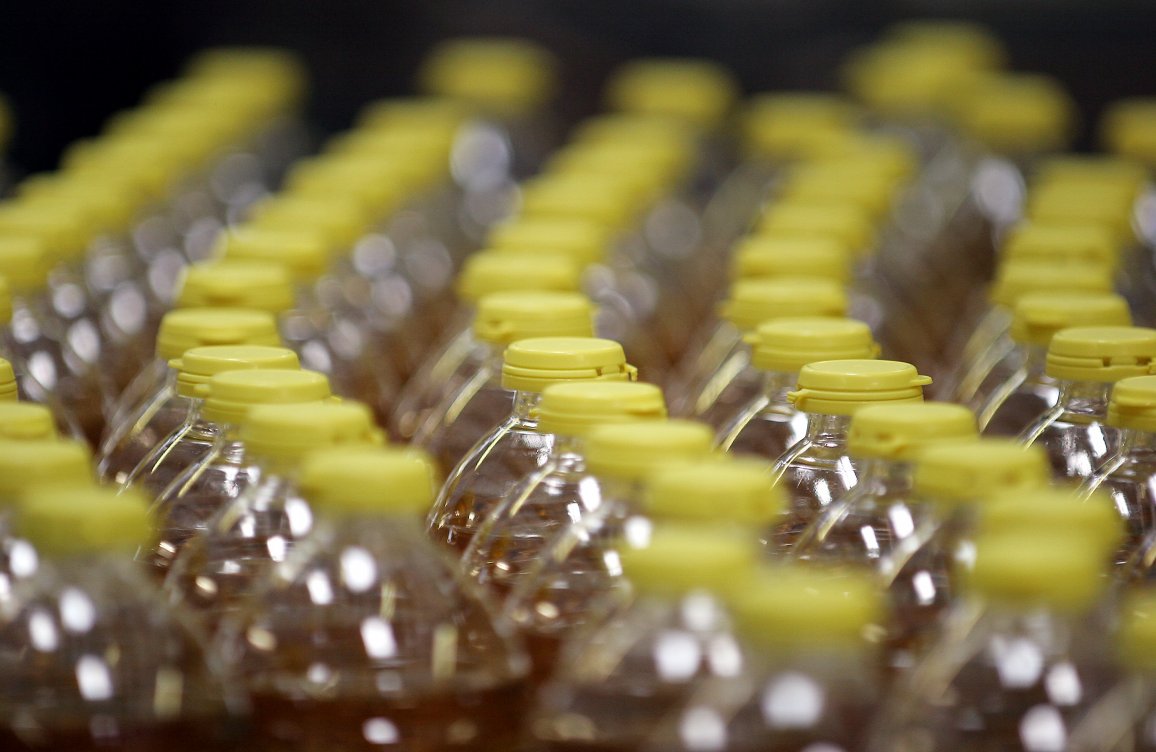Life cycle assessment certifies outstanding results for cooking oil PET bottles
Tradition brings obligation – to think ahead. At least, that applies to the cooperation between ALPLA and the German oil mill Brökelmann. The partnership has been in place for more than 50 years, but the aim was always the same: a good, natural product requires a responsible and sustainable packaging solution.

In 1988 – more than 30 years ago(!) – Bertram Brökelmann asked himself an important question: ‘What packaging is most suitable for my cooking oils?’ The forward-thinking entrepreneur not only had costs in mind, but also wanted the most environmentally friendly packaging solution possible. In the end, the choice was a one-litre PET bottle. A considered move, as the senior partner of the German oil mill explains: ‘The decisive point in the choice of the PET bottle weighing just 20 grams rather than the one-litre glass bottle weighing around 700 grams was ultimately the carbon footprint, mainly based on the weight difference of 680 grams. The Brölio PET bottle was and remains the lightest oil bottle in the world.’ Of course, the decision makers also considered factors like logistics and product safety.
Trusting, long-term cooperation
ALPLA still produces the PET bottle in an in-house factory at Brökelmann in Hamm to this day. The in-house production offers environmental advantages, as there is no need for any HGV transportation or repackaging. The close cooperation with our customers also requires continuous improvement. Thus, the one-litre PET oil bottle has lost a lot of weight over the years: today, it weighs as little as 15.9 grams. That not only saves materials and costs, but also greenhouse gases during transportation to food retailers. At first glance, 4 grams less per bottle might not seem like a lot. But when it is extrapolated to the annual capacities over a longer period of time, it ultimately means a significant contribution to saving resources.
Pioneer for innovative products
But it would be unusual for the family companies ALPLA and Brökelmann to want to rest on their laurels. In spring 2019, Bertram Brökelmann again asked the question: ‘Which packaging solution is the most sustainable for my products? Are plastic oil bottles still the right choice?’ Fundamentally, those responsible were still convinced that the light PET bottles were ecologically and economically superior to the glass alternatives. But, not least due to the emotional discussions about plastic packaging, they wanted to have watertight facts in front of them. ‘Plastic packaging is being questioned in general. But the Hamm oil mill would like to convey a positive feeling to interested members of the public and its customers that they are also buying an ecologically beneficial product with the PET bottle,’ Bertram Brökelmann wrote to ALPLA CEO Günther Lehner.
Life cycle assessment for oil bottles in Germany
At this point, the ALPLA Sustainability Team got involved. In April 2019, ALPLA presented a comprehensive life cycle assessment (ISO 14044) of the environmental impacts of packaging in Austria. Packaging of cooking oils on the German market was now also to be compared using this method. As well as the PET oil bottle from ALPLA with different proportions of recyclate, the independent consultancy c7-consult analysed disposable glass bottles from selected German brand-name oils and olive oils from southern Europe. Some of the products are filled in Germany, some in Austria, and some in southern Europe. The different transportation distances were considered in the life cycle assessment.
A life cycle assessment analyses the environmental impacts of products throughout their entire life cycle. In this case, that includes the production of the container, the fastening and the labels, sales and transport packaging, filling, distribution to retail, losses during filling, and the recovery and disposal of waste. Six inventory analysis parameters and seven impact categories were calculated in order to compare the environmental impacts. These range from the contribution made to climate change to summer smog and water consumption.
PET bottle has the lowest environmental impacts
The results provide an excellent reference for the PET bottle: it comes out considerably better in all impact categories and inventory analysis parameters than the disposable glass bottles tested. A higher proportion of recyclate further improves the result for the PET bottles. However, due to the very low weight of the PET oil bottle, the benefit is not very noticeable.
Regarding the results of the glass bottles, the report establishes that production of those bottles in Germany and Austria causes less environmental impact than manufacture in Italy and Spain. The latter countries also require longer transportation distances from the filler to the consumer. Green glass has ecological benefits compared to brown and clear glass, because a higher proportion of the fragments can be processed. The ratio of packaging material to content also plays a role in the analysis. The heaviest glass bottle among the products analysed weighs around 550 grams, with the others between 300 and 400 grams. The glass bottles are therefore still several times heavier than the plastic bottles.
A core objective for ALPLA is used plastic bottles being collected and processed into regranulate and, ultimately, new bottles. The life cycle assessment of cooking oil packaging in Germany highlights clearly once more: plastic is a sustainable material and the use of recycled plastics is worthwhile.
ALPLA Hamm in-house factory fact box
- Cooperation between ALPLA and Brökelmann in place since 1968
- Opening of in-house factory in 1992
- Production in three-shift operation, five days a week
- 1,500 metric tons of oilseed is processed daily in the oil mill, 120,000 metric tons of oil are produced each year
- A recyclate proportion of up to 35% is possible
Do you like our texts? Perhaps even so much that you want to use them in your own media? Then please get in touch with us beforehand!

